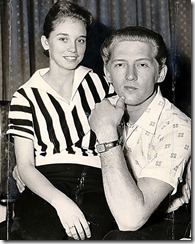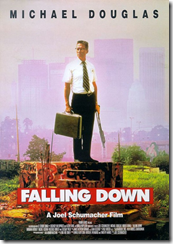
Wisdom doesn't necessarily come with age. Sometimes age just shows up all by itself. – Tom Wilson
I should be wise by now, at my age – beginning to be at least. But I'm not. Not especially. I have my moments. Wisdom is a by-product of a good memory. As Aeschylus said, “Memory is the mother of all wisdom.” If you can't remember stuff it's hard to be wise. I am intelligent, I'll own up to that and I can, on occasion, follow fairly deep lines of thought, but I can't retain them ergo it's hard to be wise for any length of time.
Do you necessarily need to be especially wise to be a writer though? Or clever? Or even that knowledgeable? Isn’t it enough to be entertaining? For some people, perhaps, but not me. Does that make me a show off or a snob? I’d like to think not but I find myself rejecting stuff I write these days left, right and centre because it lacks, for want of a better word, profundity.
pro·fun·di·ty
n.pl.pro·fun·di·ties
I’ve always viewed wisdom as a natural progression that begins with data, moves through information and knowledge, onto insight arriving at wisdom which philosopher Will Durant defined quite succinctly as “total perspective.” The trouble with our perspectives is that they tend to fall into two categories: objective and subjective—the inside of a ball cannot see what’s outside nor can the outside of a ball see what the inside is like. It’s an either/or thing.
Every writer faces this question at some point during their career: What impact does my writing have? What difference does it make anyway? Does what I say matter? I find myself coming up against these questions more and more these days. When I was, to use the term Gerald Murnane uses, a “secret writer” the only person my writing had to satisfy was me and me alone and, for the most part, it did just that. I wrote to work things out, things got worked out and the writing got stuck in the proverbial drawer or big red folder as the case may be. Now I’m a published writer. (Yay me.) Now there are people out there—not a lot I grant you—who have put their hands in their pockets, pulled out their credit cards, bought and read one or more of my books and I have to face the fact that there is a very good chance that the next book I write will follow the ones that have already appeared in print and there is something terribly off-putting about that.
Once a book becomes a product everything changes. Products get marketed. Products appeal to demographics. Demographics consist of people and those people come armed to the teeth with opinions and expectations. Bob Dylan had a huge fan base and then one day he—on a whim from all accounts—swaggered onto the stage at Newport with an electric guitar and didn’t do what his fans had come to expect of him and I suspect there are still one or two hardliners out there who still  have never quite forgiven him. Was that wise? Well it worked out okay in the long run but it might have ended his career. When Jerry Lee Lewis married his thirteen-year-old third cousin twice removed that didn’t exactly go down so well with his fans.
have never quite forgiven him. Was that wise? Well it worked out okay in the long run but it might have ended his career. When Jerry Lee Lewis married his thirteen-year-old third cousin twice removed that didn’t exactly go down so well with his fans.
I don’t think being online as much as I’ve been over the last four or five years has been all that good for me as a writer. Okay I’ve met a bunch of nice people—hell, you’re probably one of them—sold a handful of books and I feel a bit more like a real writer these days even though I’m not exactly sure what that might be. But I’m also rubbing shoulders with people who have a very different idea about what it means to be a writer, people who are (or at least it seems as if they are) only interested in sales as if that’s the benchmark, that that somehow vindicates them: I’ve sold x number of books so I’ve arrived. When I was that secret writer I never really thought about what other writers did or were doing. I wrote my books, put them in that proverbial drawer I keep going on about and just got on with it. Now I’m surrounded by all these people who aren’t doing things my way, who aren’t writing books like mine, who aren’t writing for the same reason as me and they make me feel as if I’m doing it wrong. I’d thought that I was fairly secure within myself but I’m not quite so sure because it does get to me.
Wise men tend to be a bit on the isolationist side, antisocial bordering on misanthropic even. They secrete themselves away in caves and hermitages and people have to seek them out and beg audiences with them. That was me until a few years ago, going through the motions of being wise and hoping that actual wisdom might descend upon me somewhere along the line. Now I need to be social which goes against the grain. Is this perhaps because I imagine that if people spend too much time around me they might start to realise that I’m nowhere near as wise as they might have thought at first and that I’m really only a part-timer?
There wasn’t a great deal of mud-slinging when my first wife left me but one thing she did say to me in the heat of the moment in the midst of our living room was, “And do you know something else? You’re not deep. You’re shallow.” And that hurt. Let her slag off my performance in the bedroom by all means, my dress sense, my taste in music but not my intellect. Of course in many, many ways I am shallow although I prefer the term narrow-minded. I don’t have the broadest of tastes nor the widest of experiences and if all the TV channels started to broadcast nothing but science fiction programmes back to back night and day you’d get no complaints from me. I was in my early twenties when she left me. Of course I wasn’t deep. But it’s true that I didn’t just have a chip on my shoulder, I had a whole fish supper. I believed in my writing like at no other time and it’s probably just as well that I didn’t spend much time around other writers because they would have told me the God’s honest truth: You’re not very good, son. And neither I was but the potential was there.
There is something conceited about writing things down. You are making out that these things are worthy of being recorded permanently, that what you have to say is worth listening to and that it will benefit others to read them. Do I believe that about my writing? Actually, yes; yes I do. I think what I write matters and I don’t think I would have written any of it if it didn’t matter and even though I wasn’t that fussed about people reading I still liked it when people did. I liked that I had the power to affect people. That said I’m not very comfortable wielding any kind of power. I don’t like motorbikes. I don’t like guns. I don’t like politics. I like being in the backroom just getting on with things. I also like that every now and then I come out with something that might be construed as actual-factual bone fide wisdom.
I’m not much of a storyteller when push comes to shove. I can enjoy a good story but I’ve never really thought once I’ve read one: I wish I could write something like that. Because I don’t. I was asked recently why I wrote fiction and not essays. It’s a fair question and I thought about it for a while before answering it. The most obvious answer is that it never occurred to me and if I think about why it never occurred to me it’s because I don’t think I could pull it off. Writing an article for Wikipedia is one thing and I wrote a whole slew of them before I started blogging but they were all about what other people had thought, said and done. These kind of essays would be about what I thought and despite the hundreds of thousands of words that I’ve written in this blog, once I start to think about what I think it never takes me very long to say it. Look at any of my poems—pick three or four at random—and you’ll see that most of them have an aphoristic quality about them.
I am not a philosopher—let’s get that straight from the start—I am a poet. But philosophy interests me. The word "philosophy" comes from the Greek φιλοσοφία (philosophia), which literally means "love of wisdom" so perhaps I’m being too harsh on myself. Maybe I am a philosopher. One would hope we all are. Or at least aspire to be. Philosophy is the study of general and fundamental problems, such as those connected with existence, knowledge, values, reason, mind, and language and when you read my poetry you’ll see that these are exactly the kind of topics that I tackle over and over again. An example:
THE WEAKEST LINK
A long time ago
someone bound me
to the pillar of reason.
It might even have been me:
I can't remember now.
But don't think me tamed
after all these years.
When was the last time
you looked at my eyes?
When was the last time
you really looked
at my eyes?
Even the finest chains rust in time.
6 August 1989
It’s probably not my finest poem but it does make one think. My first thought actually is: What the hell was I thinking when wrote that? You bind wild animals to posts not reasonable men. Reason is like a straightjacket though. Think about the  film with Michael Douglas, Falling Down. What happens when a reasonable man gets pushed too far? By 1989 I had been ‘reasonable’ for thirty years. The eyes, of course, are the windows of the soul. My body was still going through the motions of being good, being reasonable, but inside I was heading for a breakdown and a few short years afterwards it came.
film with Michael Douglas, Falling Down. What happens when a reasonable man gets pushed too far? By 1989 I had been ‘reasonable’ for thirty years. The eyes, of course, are the windows of the soul. My body was still going through the motions of being good, being reasonable, but inside I was heading for a breakdown and a few short years afterwards it came.
Of course when it came I got packed off to see a psychologist for a bit of behavioural therapy. I’ve seen three over the years and they’ve always found me a bit of a challenge because of the degree of insight I showed as to what was wrong. I’m sure they coped better with overeaters, dipsomaniacs, self-harmers and drug addicts. But we always struggled. Writing is therapeutic. It is for me. Some mental health professionals recommend it and I would go along with them wholeheartedly. What gets produced might not be great literature but if it provides an individual with insight then it’s done its job. It can get tossed in the bin afterwards. What’s more important, the sum or the answer? They tell you at school to show your workings but, at the end of the day, the only thing that really matters in the answer. Unless you want to communicate your insights to another and that’s why I don’t toss my poems in the bin once I’m done with them because the kind of things that preoccupy me are the kinds of things that preoccupy most of us and I was taught never to be selfish:
WISDOM
There are so many types of truth.
Some are simply answers
others are good reasons.
There are excuses too,
sad, watered-down half-truths,
and, of course, platitudes and lies.
Some people refuse to count them.
The deepest truths are called meanings
which don't only answer,
they explain or excuse.
Then comes understanding
and finally insight:
the power to look within and
not be afraid of the dark.
31 August 1997
If you’ve had a look at my website recently you might have noticed that, at the top right of each page there is a quote. They’re all short quotes from my poems and stories. I had to keep them short because of the way the page is formatted and I know in some browsers they don’t look quite as perfect as they do on my machine but my HTML skills are limited. They’re just a few examples of the memorable ways I’ve found to say certain things. And a lot of the times that’s all that wisdom boils down to, a memorable way of saying something.
Robert Frost memorably said that “a poem begins in delight and ends in wisdom.” I wonder how many of us can tick those two boxes once we’ve put our pen down or hit CTRL-S?